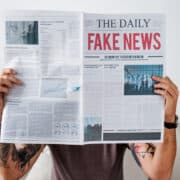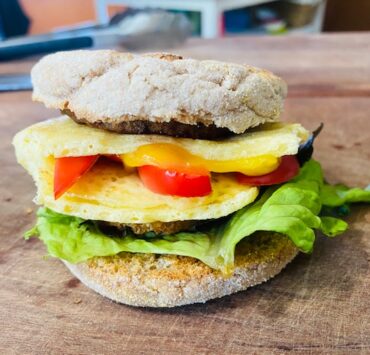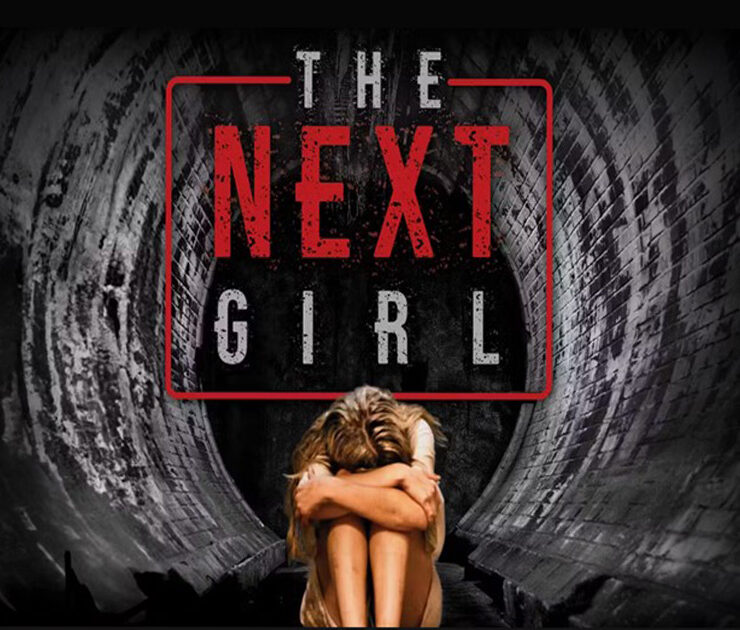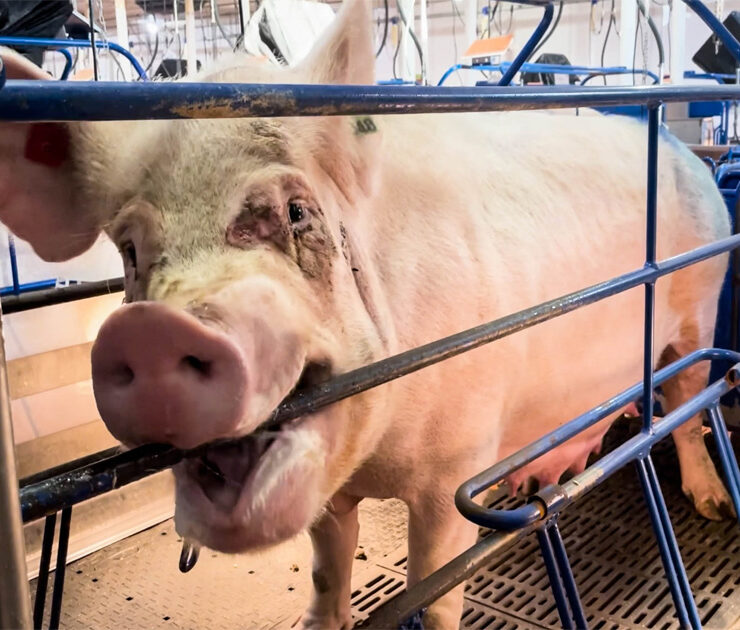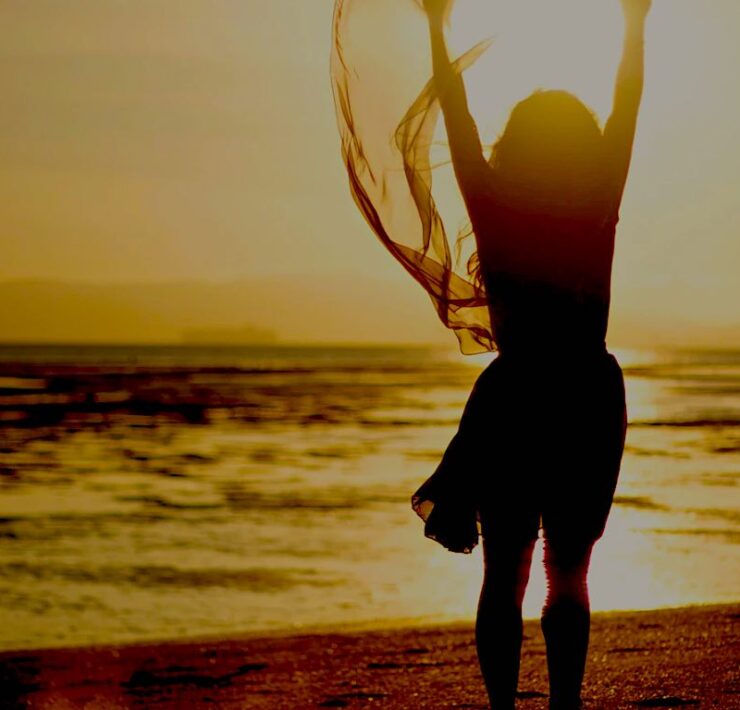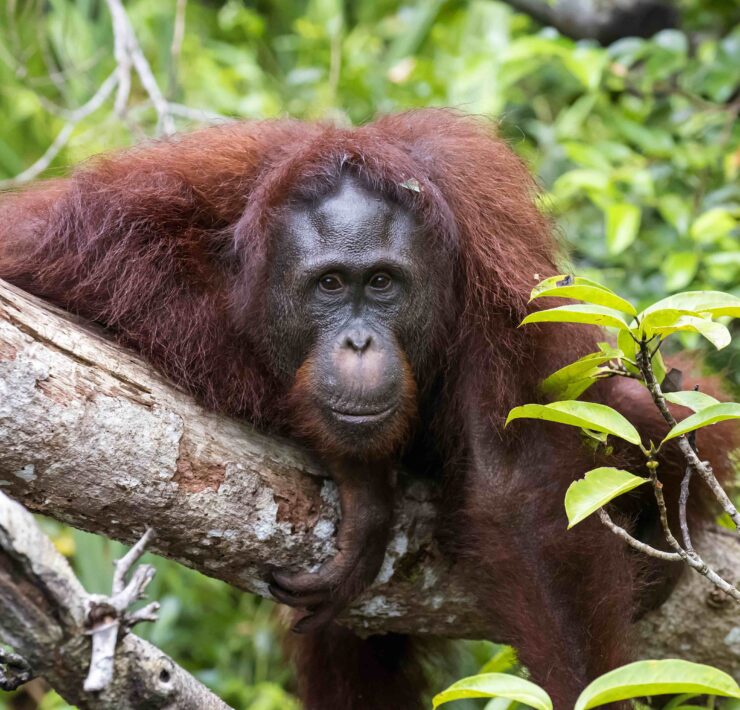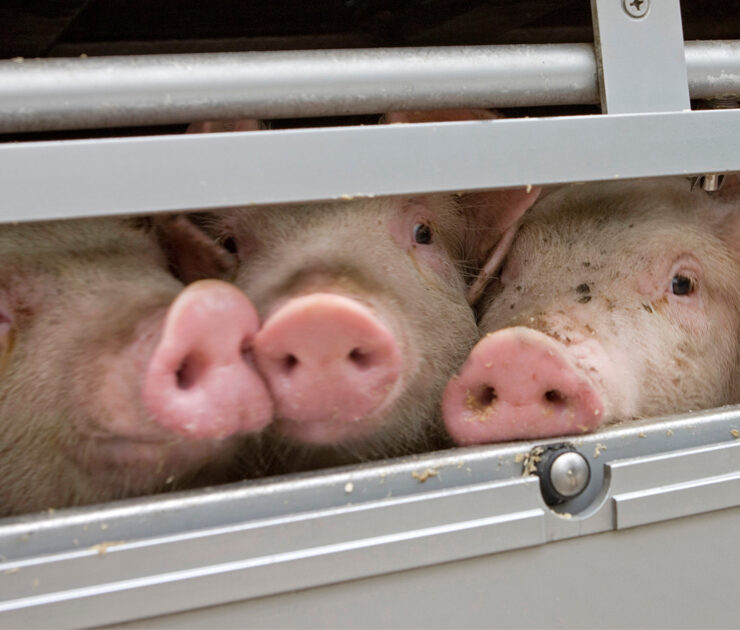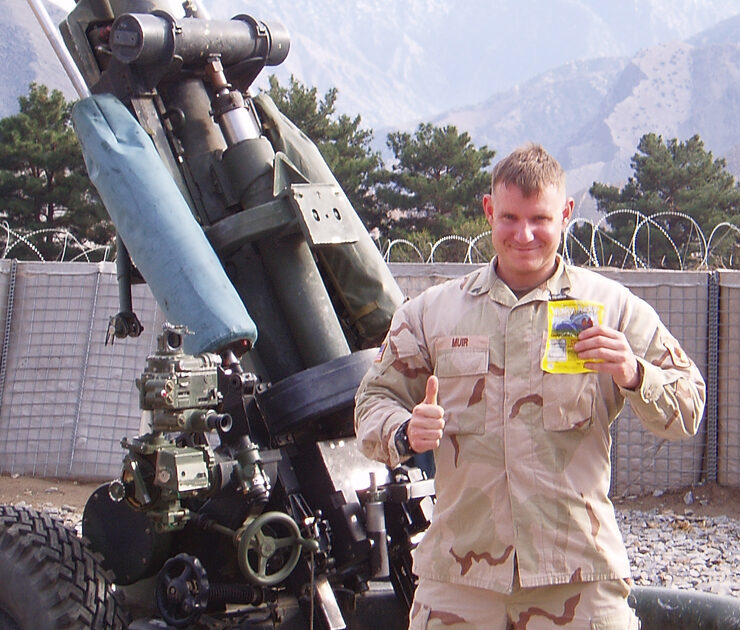Greta Thunberg’s Film Tells Us to Go Vegan
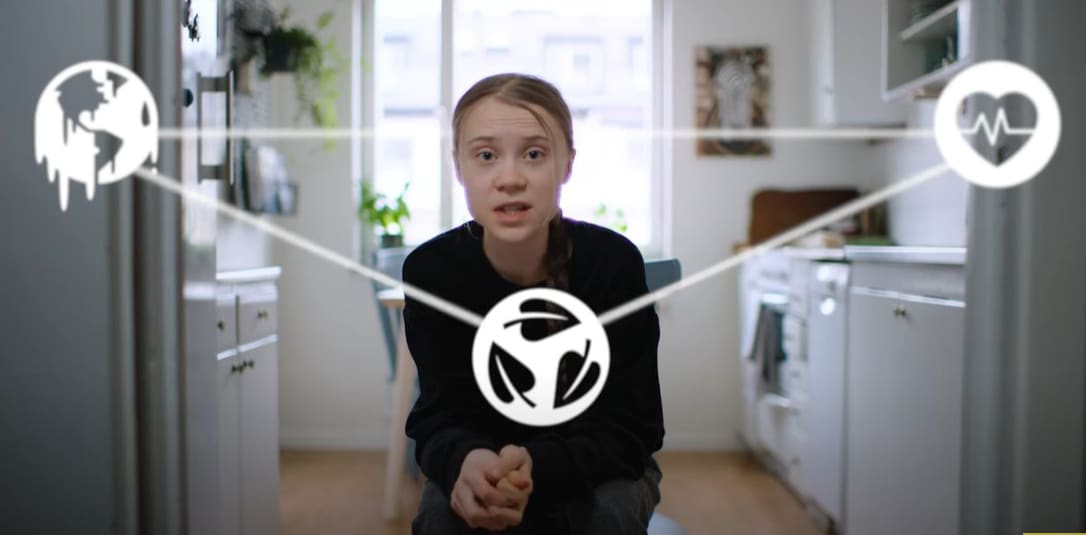
GRETA THUNBERG’S NEW FILM ABOUT OUR FOOD SYSTEM
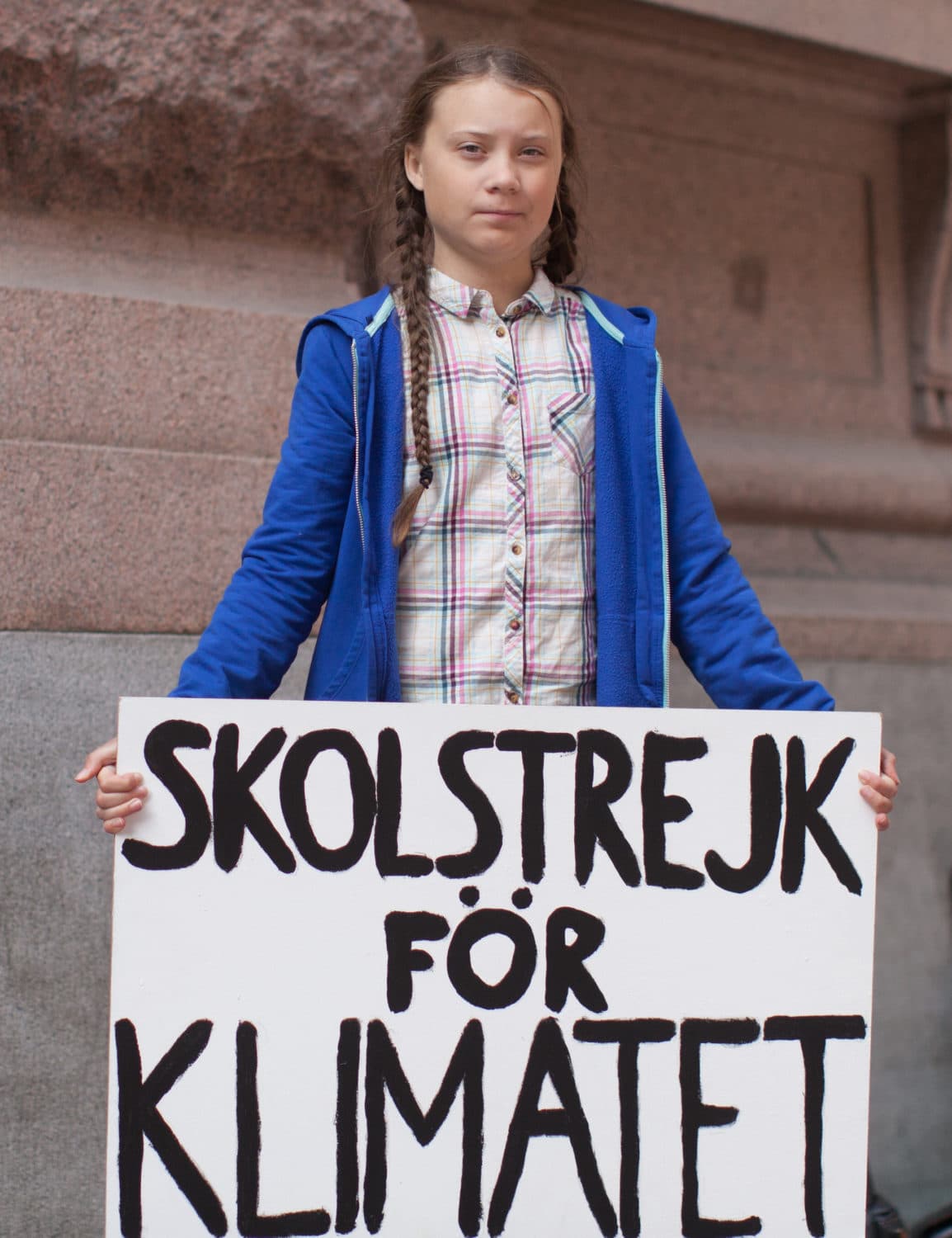
The new Greta Thunberg film is finally spelling it out to all environmentalists who follow her: if you really care about the Earth, go vegan. On May 22nd, 2021, Biodiversity Day, the organization Mercy for Animals launched a new film called For Nature. In it, the renowned Swedish climate activist Greta Thunberg explains how animal exploitation has caused our current health and environmental crises. The YouTube link to this very short film is at the bottom of this article.
The 18-year-old vegan has been campaigning for the planet since skipping school when she was 15 to hold a protest. She has now been imitated by many young people around the world. However, she never explicitly pointed the finger of blame at animal agriculture as she has done with this film. She has been vegan for several years now (and convinced her parents to do the same). Her campaigning has traditionally been focused on the use of fossil fuels, but this film is mainly about animal agriculture.
GRETA THUNBERG’S FILM IS HER CREATION
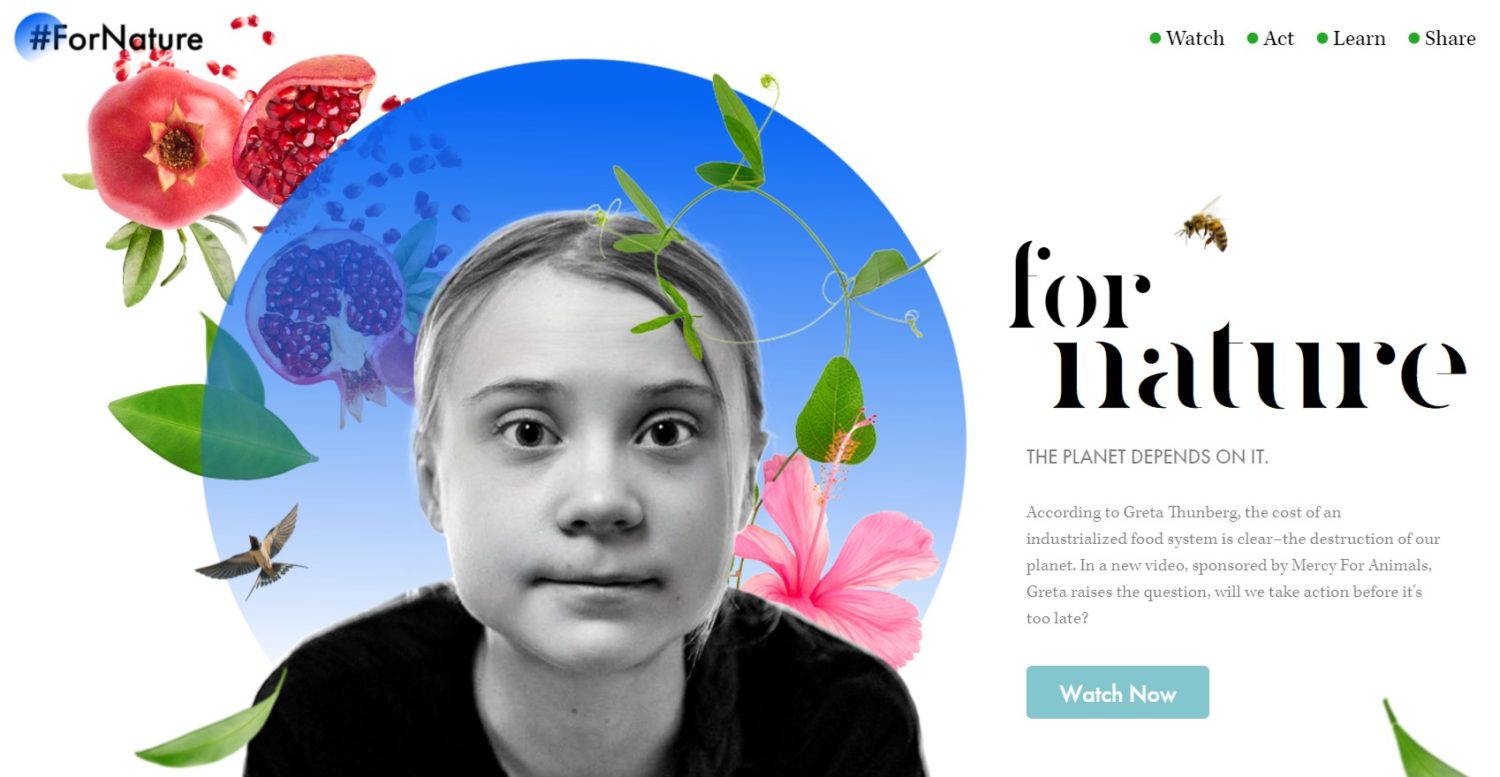
Although directed by the award-winning Tom Mustill and produced by Gripping Films Production, this five-minute film was Greta’s idea. She wanted to tell the world how our relationship with nature is broken by the way we produce food. So, she conceptualized the film and script and looked for someone to produce it and finance it.
Greta, who in 2019 became TIME’s magazine’s youngest person of the year, wanted to show the links between the climate, ecological and health global crises, links she says people don’t normally see. Looking straight into the camera, with her now-iconic accent, she says in her usual direct style:
“I WOULD LIKE TO CONNECT THE DOTS. BECAUSE LET’S FACE IT. IF WE DON’T CHANGE, WE ARE F*CKED.”
FIRST DOT TO CONNECT: THE HEALTH CRISIS
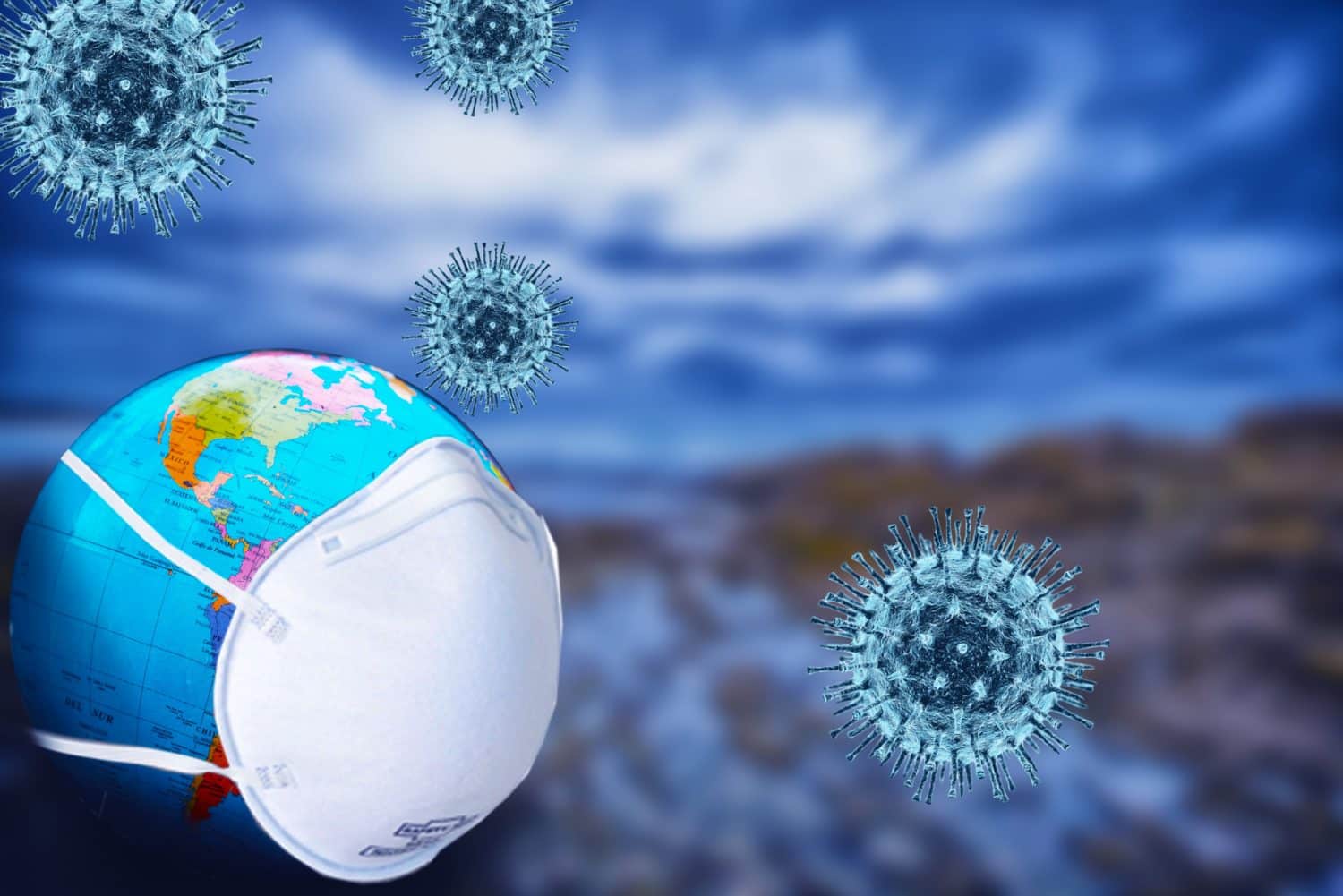
Greta Thunberg’s film begins with her wearing a mask talking about COVID-19. One of the many examples of zoonotic diseases caused by animal exploitation. She says: “Up to 75% of all new diseases come from other animals.” There may be still many things we don’t’ know about the exact way these pandemics originate. However, we certainly know that they are linked to the way we treat animals.
In a future vegan world, there would not be factory farms, animal markets, zoos and wildlife trade. In such a world, the conditions for the emergence of such diseases would be greatly reduced. Greta believes the way we treat Nature caused most of these pandemics:
“THE NEXT PANDEMIC COULD BE MUCH, MUCH WORSE, BUT WE CAN CHANGE.”
SECOND DOT TO CONNECT: FOOD PRODUCTION
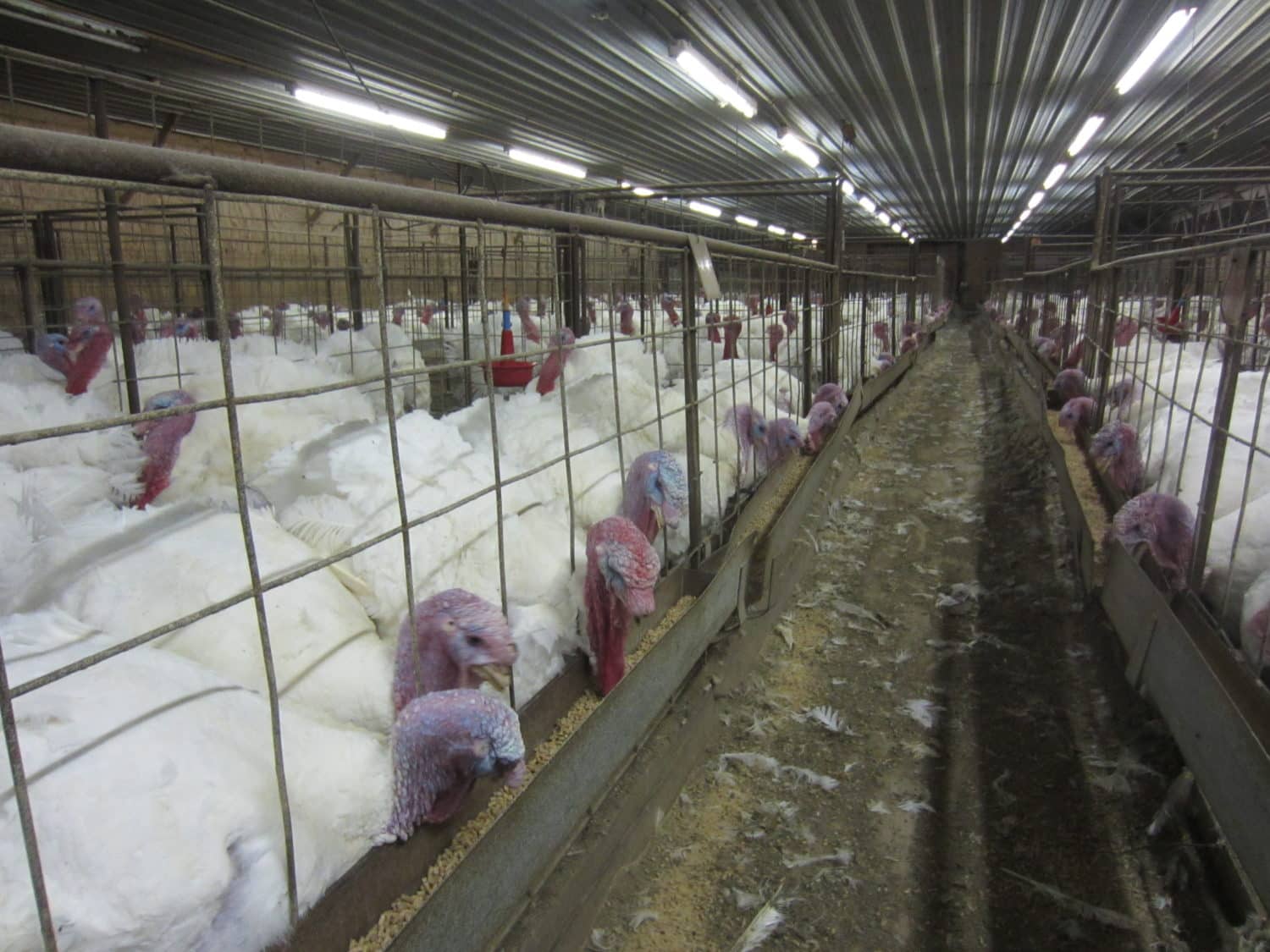
We vegans often talk about the effects of animal agriculture on the animals’ lives and the planet’s climate. But we should not forget how it directly affects humans by the wasteful way it monopolizes food production. In a vegan world, we would be able to produce much more food with less land and water, and it would be healthier too. Researchers at the University of Minnesota’s Institute of the Environment studied this in 2013. They concluded that existing cropland could feed four billion people more by dropping biofuels and animal feed.
Greta explains more in the film: “83% of the world’s agricultural land is used to feed livestock. Yet, livestock only provides 18% of our calories.”
“IF WE CONTINUE, WE WILL RUN OUT OF LAND AND FOOD. IT JUST DOESN’T MAKE SENSE. THE LAND REQUIREMENTS FOR MEAT AND DAIRY PRODUCTIONS ARE EQUIVALENT TO AN AREA OF NORTH AND SOUTH AMERICA COMBINED.”
THIRD DOT TO CONNECT: BIODIVERSITY LOSS
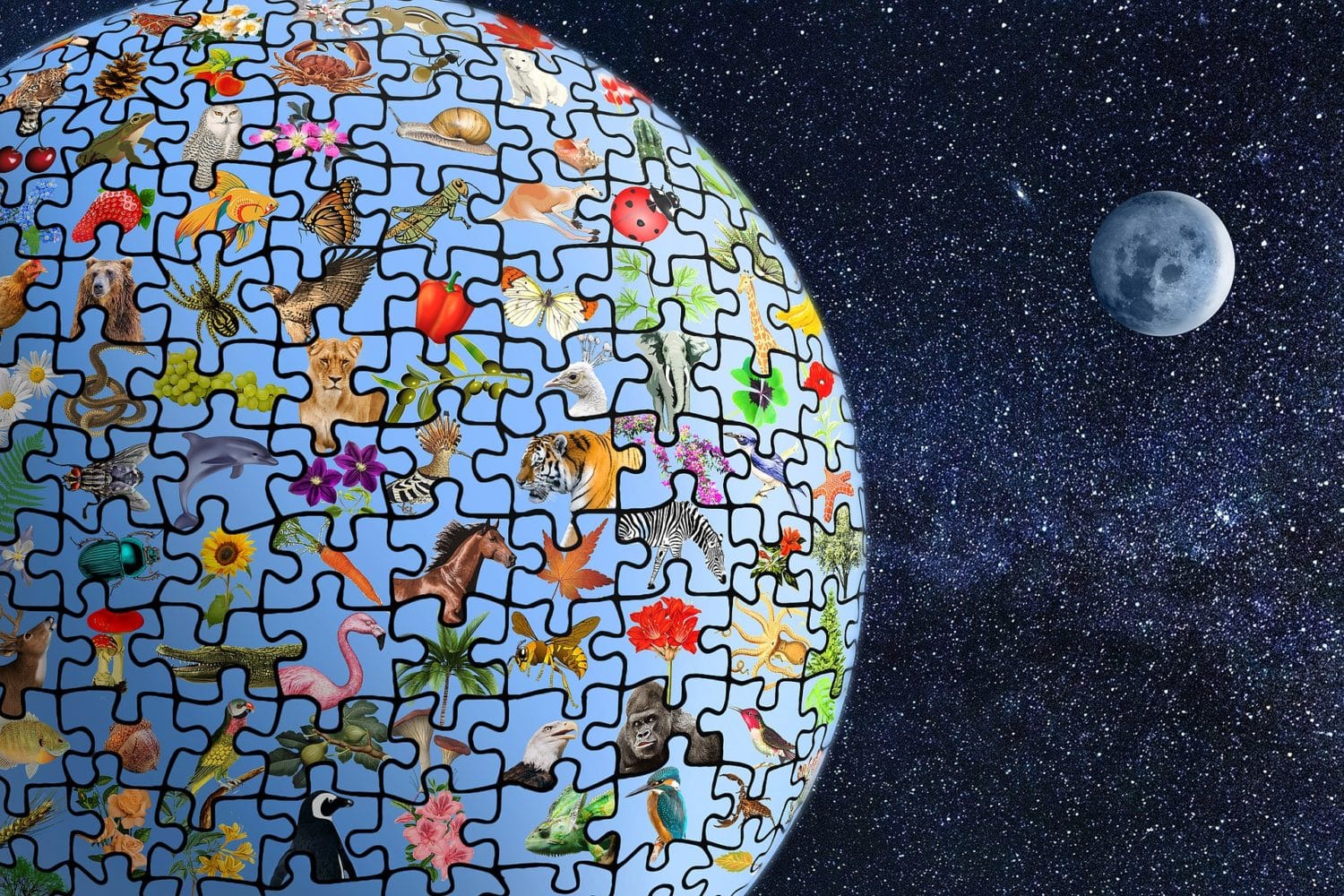
The loss of biodiversity all over planet Earth is a concern all environmentalists share. This is not mostly caused by the use of fossil fuels, by the transport industry or energy consumption. This is mainly caused by the growth of the human population and the wasteful ways we produce food to feed them all. Greta spells it out explicitly:
“If we keep making food the way we do, we will also destroy the wild habitats of most plants and animals. Diving countless species to extinction. This really sucks for us too. They are our life-supporting system. If we lose them, we will be lost too”
FOURTH DOT TO CONNECT: THE CLIMATE CRISIS
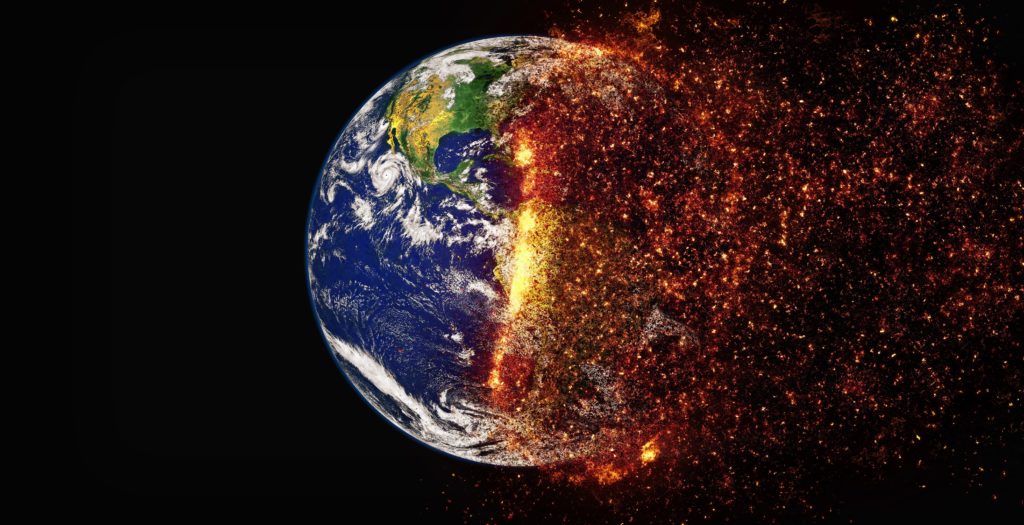
Any climate campaigner who follows Greta’s activism and lobbying will learn an important message by watching this film. It’s not all about fossil fuels or government policies. It’s also about your choice of food. Animal agriculture is one of the forgotten “villains” by many environmentalists who still haven’t switched to the diet vegans eat. Greta explains:
“When we think about the villains of the climate crisis, of course, we picture fossil fuel companies. But agriculture and land use together are about one-quarter of our emissions. This is huge”.
And the food that vegans eat is a plant-based diet. Greta clearly states this is part of the solution:
“It doesn’t have to be like this. If we change towards a plant-based diet, we can save up to 8 billion tonnes of CO2 every single year. We can feed ourselves on much less land, and Nature could recover.”
“WE NEED A SYSTEM CHANGE. BUT WE CAN FIX THIS BECAUSE WE ARE PART OF NATURE.”
FIFTH DOT TO CONNECT: ANIMAL SUFFERING
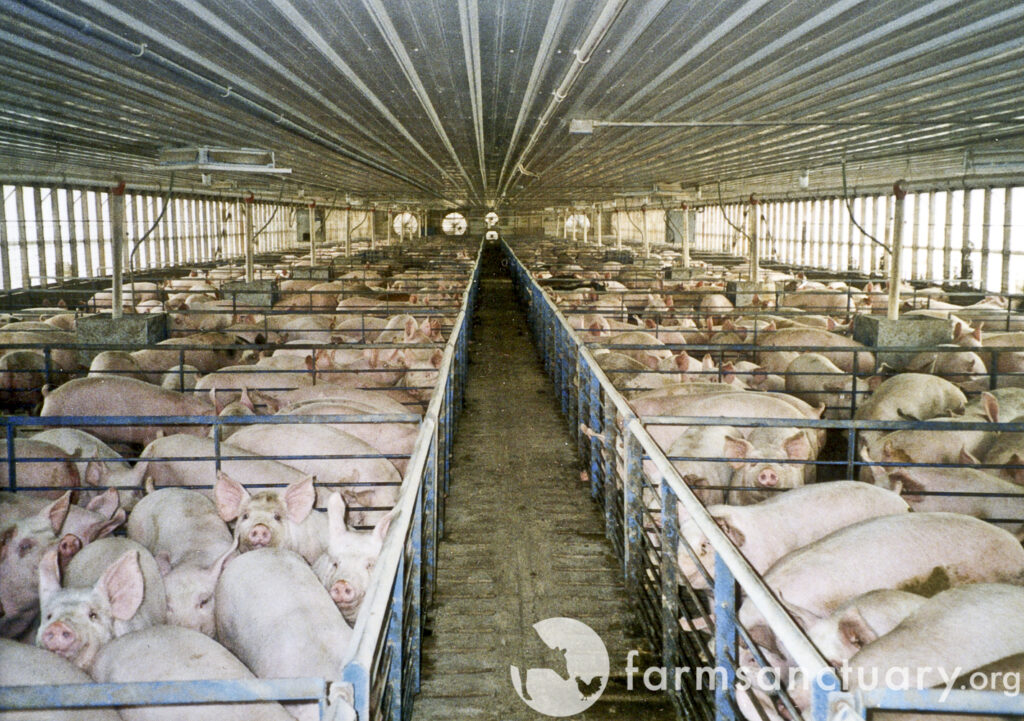
Greta Thunberg’s film is full of figures to illustrate the size of the animal exploitation problem. As vegans, we know that it would still be morally wrong to exploit animals even if only affected a few. But the numbers are so huge that is hard to believe how some people who call themselves animal lovers are still reluctant to become vegan. She says in the film:
“Every year we kill more than 60 billion animals, excluding fish, whose numbers are so great, that we only measure their lives by weight. What about their thoughts and feelings? (…) 70% of the animals we farm live inside factories. In the US, that number is 99%. Their lives are short and terrible.”
“IT IS HEART-BREAKING TO KNOW ALL THIS, BUT IT IS ALSO OUR OPPORTUNITY. WE KNOW WHAT WE CAN DO. WE CAN CHANGE THE WAY WE FARM, WE CAN CHANGE WHAT WE EAT, AND WE CAN CHANGE HOW WE TREAT NATURE.”
GRETA THUNBERG’S FILM IS A CALL FOR GOING VEGAN
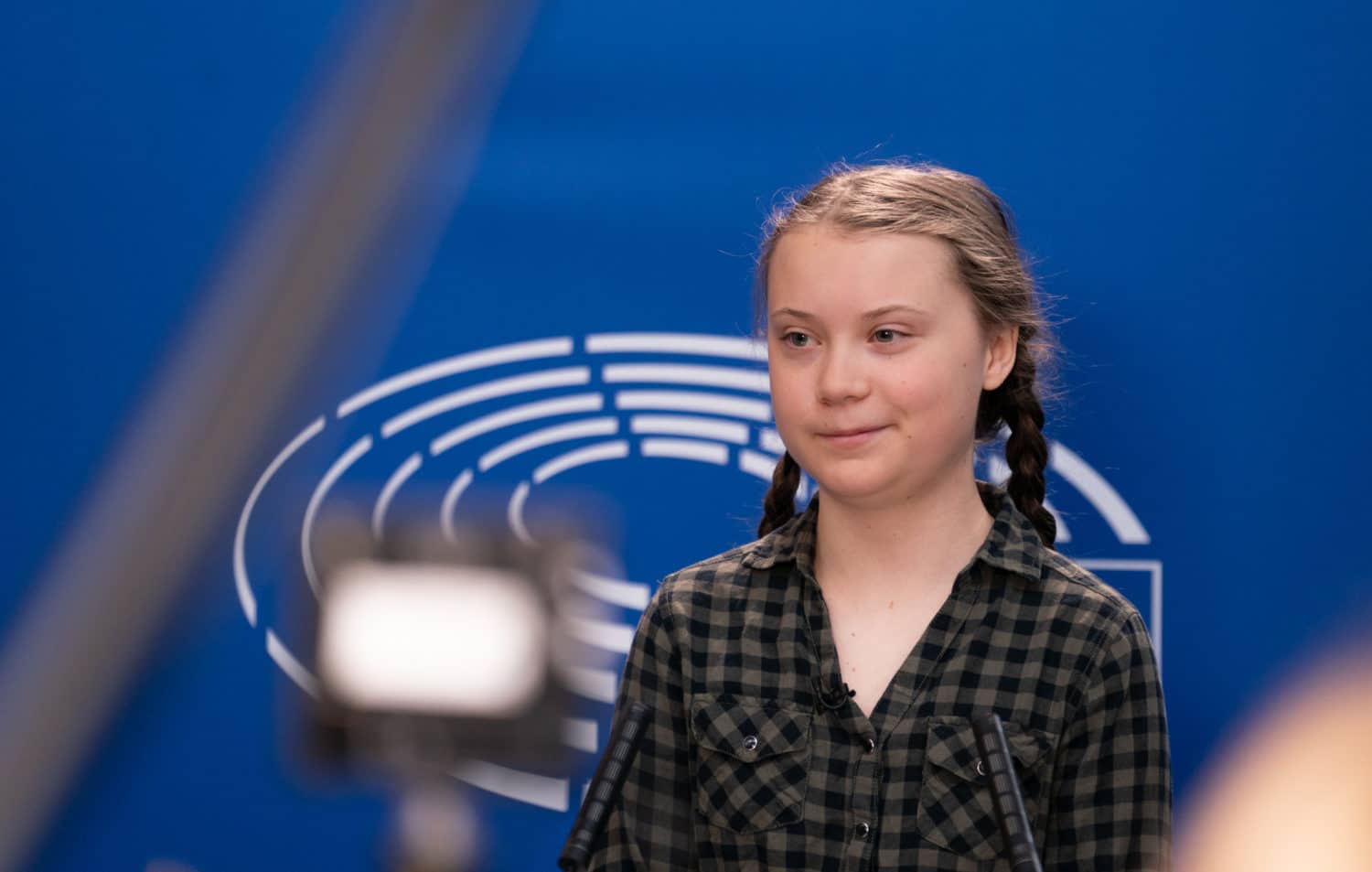
The film has great visuals, clear graphics and atmospheric music by George FitzGerald. But it is firmly centered on Greta delivering the message straight to the viewer. Wearing black, she lets us know, calmly but resolutely, how serious the problem is and how we need to act.
But this time she is not addressing the UN Climate Change Conference in 2018 with inspiring poignancy and genuine concern. Neither is she addressing the world’s leaders with clear disappointment and despair, as she did in 2019 at the UN Climate Action Summit. This time she is addressing all of us with a clear message of how we can contribute to the solution. A message with an unmistaken vegan flavor (although not using the term vegan directly perhaps to avoid prejudice against it). This film is a direct message to consumers who still eat meat. It is addressed to “environmentalists” who still drink cow’s milk. It’s a message directly to the viewer. She ends with this question:
“MOST OF US CAN DO SOMETHING. SO, WHAT WILL YOU DO?”
[embedyt] https://www.youtube.com/watch?v=7WvehTbuvIo[/embedyt]
What's Your Reaction?
Jordi Casmitjana is a vegan zoologist and author.

